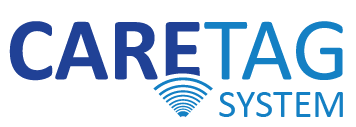The need to adapt to survive has never been more prevalent in Australia’s Disability Sector than it is now. With competition increasing, margins tightening, and funding reducing, now is the time to step back, analyse your business and set new goals for the year ahead.
Goal setting is important in business as it forces you to reflect on the previous year, analyse your business’ current performance, and identify areas of improvement for the year ahead.
Things to consider when goal setting for this coming year:
1. Do you need to plug any expenditure leaks?
In a highly competitive, regulated market, keeping a tight control on expenses is key to ensuring your business remains cash flow positive and your profit margins are protected. Take an objective look at your expenses and analyse where your money is being allocated. Did your marketing spend provide any return on investment? Were your staff’s mileage claims accurate? We performed an audit for a medium-sized DSP who knew that their mileage claims were 20% higher than they should have been, simply due to their inability to accurately collect data. 20%! That is a huge expenditure leak, and can have a huge impact on a company’s bottom line.
A simple recommendation of implementing GPS enabled data collection and tracking in company vehicles, linked to our CARETAG Transport Module enabled them to reign in their expenditure leaks and reinvest that money into other areas, like marketing (see below).
2. How efficient are your administration processes?
The key to accurate business performance analysis and effective goal setting is visibility. How easy is it for you to run reports and get a clear picture of your business performance? Is this an automatic or a manual process? The ease with which you can extract business information is often a good indicator of how efficient your administration processes across your business are. Do you need to wait for a staff member to manually cross-check data from different departments to collate a report for you? Or do you have software that does this for you?
True visibility is key here, so you may need to look at the way your data is collected, stored and processed within your organisation. If you’re relying on manual reconciliation across different facets of your business, then you are exposing your business to the risk of potential human error with manual handling errors and double entry errors. Not to mention the additional labour hours you’re paying for to complete these inefficient administration tasks.
3. How much do you need to invest to attract new clients?
Increased competition and lower barriers to entry in the new client-centric NDIS landscape means focusing on new client acquisition is becoming the most important task to ensure your business is sustainable. You need to set yourself apart from your competitors and make yourself standout to attract new clients. Work out what your point of difference is, (i.e: what you offer your clients that your competitors don’t) and shout it from the rooftops. Or better yet – get your happy clients to do it for you! Existing customer testimonials carry more weight than businesses talking about themselves, so collect testimonials where you can and communicate them widely. Re-distribute recovered funds from your expenditure leaks analysis and administration process streamlining and invest in marketing to create awareness, communicate your message and attract new clients.
4. Make customer service the centre of your business
New client acquisition can be expensive, so it is paramount that you invest time into delighting and securing the loyalty of your existing clients. The best way to do this is to focus on your business through their eyes. Ask yourself:
– How easy is it to interact with your business?
– Do you offer the type of services your clients want in the way that they want them?
– How friendly are your staff across your organisation?
– How easy is it to find information about your services?
Tony Hseih, CEO of Zappos once said “Customer service should not be a department, it should be the entire company”.
Do your company values reflect your client’s experience? Asking yourself these hard questions and putting measures in place to permeate a customer service culture throughout your entire organisation will help to build loyalty, attract new clients, and in turn make your business more resilient in a challenging landscape.
“Focusing on the customer makes a company more resilient.” – Jeff Bezos, CEO at Amazon.
CARETAG is a purpose-built, easy to use, software management system designed to streamline your administration, saving you time and money. CARETAG was designed to address the challenges of service providers in the community care industry, specifically NDIS and MyAgedCare providers. Designed as a flexible, modular system, CARETAG can integrate with your existing system, or be installed as a completely new solution, tailored to your business’ requirements. If you’d like to learn more about CARETAG, please click here, or contact us on info@caretag.com.au to arrange a demo.


Recent Comments